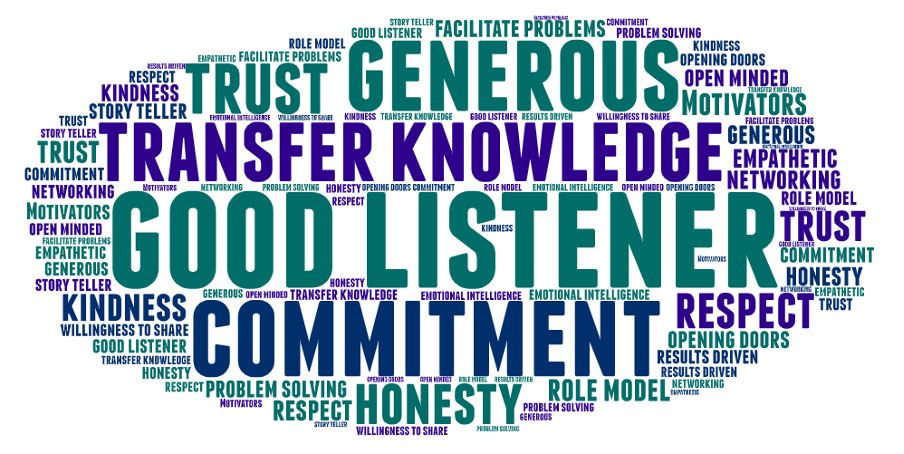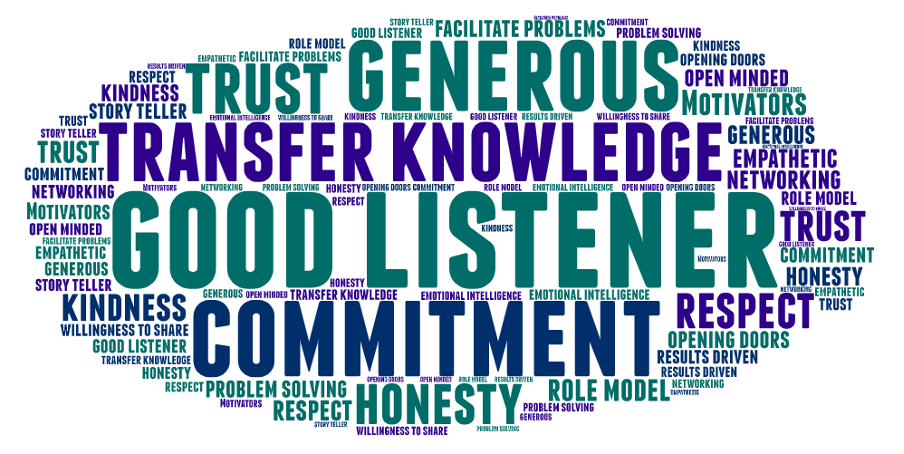How to Be a Brilliant Mentor: 7 Characteristics That Make the Difference

I still remember the first time I mentored someone formally. I wasn’t quite sure what was expected of me. Was I supposed to have all the answers? Was I there to fix things, or just to listen?
The truth is, most great mentors start with similar questions.
In today’s fast-paced, hybrid workplace, mentoring is more important than ever. It’s one of the most effective ways to develop talent, support employee engagement, and build leadership capability, especially in a world facing skills gaps, quiet quitting, burnout, and multi-generational challenges.
But what does it really take to be an effective mentor?
From years of running mentoring programmes and mentoring myself, I’ve found that the most successful mentors share seven key characteristics. And the best part? These traits can be learned and developed by anyone with the right mindset and support.
Let’s explore what they are and how they can transform your approach to mentoring.

What makes a good mentor? Here’s our top 7 characteristics:
#1 They are a good listener
The most mentioned and appreciated characteristic of a highly effective mentor is that they are a good listener. What does that mean? It means they stop talking! Not because they’re thinking about what they want to say next. But because they want to learn from what their mentee has to say. It also means they ask good open questions to encourage their mentee to think, talk and discover solutions for themselves. They not only listen with their ears; they listen with their eyes. A good mentor will pay attention and show that they have listened to what their mentee has said. They will reflect back what they have heard from their mentee’s words as well as their tone of voice and body language.
“I didn’t realise how powerful just listening could be,” one mentor told me recently. “My mentee came to their own solution just by talking it out. I barely said a word!”
#2 They are committed to the mentoring relationship
Mentoring is not a “when I get time” job. It relies on making time to meet and that requires dedication and commitment much like any other job. Unless both parties are committed to making it work, the relationship will not grow and develop into full fruition. Mentoring also requires energy to listen, engage and guide. While the focus is on the mentee discovering solutions for themselves, a good mentor needs to put in the effort to help that happen. That means dealing with the ups and downs that come into play when someone is trying to think through an important decision.
#3 They are generous
A person’s decision to be a mentor needs to come from a place of generosity. Good mentors take pleasure from seeing their mentee grow and develop. They are generous with their time. They are also generous with their attention. And they are generous with their praise. A great mentor wants their mentee to succeed, and he or she will actively support their success with words and actions. They will never be envious or feel threatened by their mentee’s growth. They will congratulate them on their triumphs and help them recover from setbacks. The generous mentor will make connections or offer resources that could be useful to their mentee whenever he or she can. Most important, a generous mentor believes in their mentee’s potential, and works with them to help them realise it.
#4 They share knowledge and experience
A good mentor shares their knowledge and experience so their mentees can learn from them. And they share it willingly and with enthusiasm. The mentee can then apply those lessons to their own situation. That knowledge may be related to the role, the function, the organisation or the industry. Or it may be real world knowledge on how to advance in a career, based on the mentor’s own professional experiences.
Mentors can also help mentees identify gaps in their skill set so they develop the skills they need to succeed. For example, a mentee may have always been terrified of public speaking and shied away from those opportunities. Having a mentor’s encouragement can motivate the mentee to develop their public speaking skills and achieve new goals in the process.
As one mentee put it: “What helped most was hearing that she’d made similar mistakes. It made me feel like I wasn’t failing. I was learning.”
#5 They are trustworthy
One characteristic that can make or break a mentoring relationship is trust. Trust is about loyalty. It is about openness, mutual sharing and respect, as well as the willingness to be vulnerable. A good mentor will be open about their mistakes, their weaknesses and their failures. By doing so, they make themselves more approachable while also sharing the lessons they learned. A good mentor will keep their promises, especially in relation to confidentiality. When a mentee trusts that what they share will never become gossip for the mentor, they can be more open and vulnerable.
A good mentor will recognise the importance of trust and have a conversation about it with their mentee. They will talk about what trust is, and what it means to each of them, sharing their expectations and experiences.
#6 They are honest
Whilst sometimes we don’t wish to hear the truth, a fantastic mentor will always be honest with their mentee. They give honest and direct feedback in a way that’s kind and constructive. They say what they think their mentee needs to hear to help them recognise areas where they need to grow. And they do it in a way that provides useful, honest guidance while ensuring their mentee takes ownership for their decisions and actions.
#7 They earn respect
A good mentor treats people with respect and is interested in building relationships. Their focus is on helping and developing their mentee, not on personal gain. They are emotionally intelligent, empathic and non-judgemental. And they never have a hidden agenda.
IFinal Thoughts: Mentoring Is a Two-Way Journey
Mentoring is one of the most meaningful and rewarding roles you can play in someone’s career. And while your mentee will certainly benefit, you’ll grow too.
As one participant said:
“I thought I was doing this to help others. I didn’t expect how much I’d gain myself.”
In a workplace that’s crying out for connection, capability, and career clarity, mentoring matters more than ever.
Want to Empower the Mentors in Your Organisation?
I’ve helped organisations like Thermo Fisher, the Institute of Migration (IOM) and the World Health Organization (WHO) develop impactful mentoring programmes that grow talent, boost engagement, and build future leaders.
Get in touch here to explore how I can help.